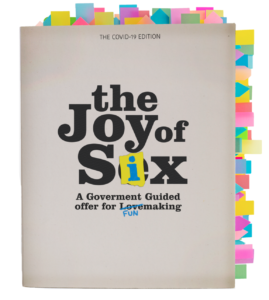The Fen in Winter

On our walk on Sunday
Quote of the Day
“Politics is not the art of the possible. It consists in choosing between the disastrous and the unpalatable.”
- John Kenneth Galbraith, letter to JFK, 1962.
Musical alternative to the morning’s radio news
If I Had You | Tommy Emmanuel & Joscho Stephan
Link
Thanks to Andrew Ingrams (Whom God Preserve) for the suggestion, which came accompanied by an explanation (much needed in the case of this blogger):
Gypsy jazz guitar is widely loved and practised as you know, but there are few really exciting players. These two guys are the best in the world, and they have discovered that they love to play together.
That wasn’t always true. If you look at their trajectories over time, you can see that Tommy Emmanuel slowly teased and cajoled Joscho Stephan out of his introverted, perfectionist zone and taught him(or let him discover) how to play not just well but playfully, crazily, magnificently.
The great thing about being a blogger is that your readers often know far more than you do.
Long read of the day
How Venture Capitalists Are Deforming Capitalism
Great New Yorker essay by Charles Duhigg which uses WeWork as a case study in 2020s madness. Basically, it’s the Boo.com de nos jours, but with contemporary twists on insanity and greed.
The funny thing is that Venture Capitalists were once seen as the providers of adult supervision for start-up founders. The WeWork scandal was a compound of two things: ‘founder-worship’ as fetishised by Peter Thiel; and the chronic need of some sovereign wealth funds to find ways of laundering their shedloads of cash.
DeepMind’s AlphaFold2 predicts the exact shape of proteins
If this is true, then it’s a big deal. According to this report, the Google subsidiary’s team have built a machine-learning system that uses a protein’s DNA sequence to predict its three-dimensional structure to within an atom’s width of accuracy.
The achievement, which solves a 50-year-old challenge in molecular biology, was accomplished by a team from DeepMind, the London-based artificial intelligence company that is part of Google parent Alphabet. Until now, DeepMind was best known for creating A.I. that could beat the best human players at the strategy game Go, a major milestone in computer science.
DeepMind achieved the protein shape breakthrough in a biennial competition for algorithms that can be used to predict protein structures. The competition asks participants to take a protein’s DNA sequence and then use it to determine the protein’s three-dimensional shape. (For an exclusive account of how DeepMind accomplished this goal, read this Fortune feature.)
Across more than 100 proteins, DeepMind’s A.I. software, which it called AlphaFold 2, was able to predict the structure to within about an atom’s width of accuracy in two-thirds of cases and was highly accurate in most of the remaining one-third of cases, according to John Moult, a molecular biologist at the University of Maryland who is director of the competition, called the Critical Assessment of Structure Prediction, or CASP. It was far better than any other method in the competition, he said.
Why is this a big deal? Because proteins do all the heavy lifting in biological processes.
They are formed from long chains of amino acids, coded for in DNA, but once manufactured by a cell, they fold themselves spontaneously into complex shapes that often resemble a tangle of cord, with ribbons and curlicue-like appendages. The exact structure of a protein is essential to its function. It is also critical for designing small molecules that might be able to bind with the protein and alter this function, which is how new medicines are created.
Until now, the primary way to obtain a high-resolution model of a protein’s structure was through a method called X-ray crystallography. In this technique, a solution of proteins is turned into a crystal, itself a difficult and time-consuming process, and then this crystal is bombarded with X-rays, often from a large circular particle accelerator called a synchrotron. The diffraction pattern of the X-rays allows researchers to build up a picture of the internal structure of the protein. It takes about a year and costs about $120,000 to obtain the structure of a single protein through X-ray crystallography, according to an estimate from the University of Toronto.
Wow!
New UK tech regulator to limit power of Google and Facebook
Well, well. A rare first from the current government — a proposal that makes some sense.
Interesting Guardian report:
A new tech regulator will work to limit the power of Google, Facebook and other tech platforms, the government has announced, in an effort to ensure a level playing field for smaller competitors and a fair market for consumers.
Under the plans, the Competition and Markets Authority (CMA) will gain a dedicated Digital Markets Unit, empowered to write and enforce a new code of practice on technology companies which will set out the limits of acceptable behaviour.
The code will only affect those companies deemed to have “strategic market status”, though it has not yet been decided what that means, nor what restrictions will be imposed.
The business secretary, Alok Sharma, said: “Digital platforms like Google and Facebook make a significant contribution to our economy and play a massive role in our day-to-day lives – whether it’s helping us stay in touch with our loved ones, share creative content or access the latest news.
“But the dominance of just a few big tech companies is leading to less innovation, higher advertising prices and less choice and control for consumers. Our new, pro-competition regime for digital markets will ensure consumers have choice, and mean smaller firms aren’t pushed out.”
The government’s plans come in response to an investigation from the CMA which began as a narrow look at the digital advertising industry, but was later broadened out to cover Google and Facebook’s dominance of the market. The code will seek to mediate between platforms and news publishers, for instance, to try to ensure they are able to monetise their content; it may also require platforms to give consumers a choice over whether to receive personalised advertising, or force them to work harder to improve how they operate with rival platforms.
I wondered whether the CMA’s investigation of the digital advertising racket would bear fruit. Looks like it has.
What Dominic Cummings never understood: impatience isn’t a substitute for policy
Fascinating essay on PoliticsHome by Sam Freedman, who worked with Cummings at the Department for Education and knows the British Civil Service well. There’s some good stuff about Cummings’s general offensiveness at the beginning, but later on some really insightful stuff about what’s really wrong with the Service.
Freedman goes back to Lord Fulton’s 1968 report on the civil service which
noted the lack of specialists, particularly those with scientific training, in key roles; the tendency to rely on generalists and the absence of modern project management techniques. Throw in a few insults and some mentions of AI and quantum physics and it could be a Cummings blog.
One reason the problems identified by Fulton are so endemic is the lack of incentive within the civil service to reform. But there’s another, bigger reason, that Cummings largely ignores: it suits the way politicians like to work. The standard ministerial tenure is around two years. A mere 1 in 10 of the junior ministers appointed in 2010 made it to the end of the Parliament. Given the limited time they have to make an impact the last thing politicians want is a machinery that is geared to long-term, expert-driven, and evidence-based policy making.
There’s a reason why all of Cummings’ treasured examples of high-performance either come from the American military (Manhattan Project; DARPA) or single party states like Singapore or China. They are typically long-term, highly technical programmes, undertaken with no or minimal public transparency, and with the role of politician limited to signing cheques. The absence of any major social reforms from his analysis of success is something of a warning sign that what he wants is not in fact possible, certainly within the confines of British democracy.
The truly baffling thing about Cummings’ worldview is the refusal to see the contradiction between his technocratic utopia of expert scientists driving paradigmatic change and his own rock-solid conviction that whatever policies he happens to support right now must be implemented at maximum speed.
For all his demands for a scientific approach to government not a single policy either of us worked on at the DfE had been properly evaluated through, for example, a randomised control trial, because they were rolled out nationally without any piloting. In technocrat utopia a major policy like the introduction of academies would have been phased in such a way as to allow for evaluation. In the real-world huge amounts of capital (real and political) were spent arguing academies were the way forward, so the suggestion that they might not work couldn’t be countenanced.
Not only are policies typically driven by political imperatives rather than evidence but they’re not even internally coherent within departments, let alone between them. Again, this is not a function of civil service failure so much as incompatible ministerial agendas. Cummings’ old department (and mine) has been arguing for a decade now that school autonomy is so critical to success that academies shouldn’t have to follow the national curriculum and at the same time all primary schools should be teaching a national curriculum so prescriptive that it insists children learn about fronted adverbials: because one Minister believed in autonomy and another very much didn’t.noted the lack of specialists, particularly those with scientific training, in key roles; the tendency to rely on generalists and the absence of modern project management techniques. Throw in a few insults and some mentions of AI and quantum physics and it could be a Cummings blog.
There’s a lot more good stuff in this essay — including an account of how the administrative capacity of the British state has been hollowed out by outsourcing delivery of government services to a small number of huge, incompetent and in some cases corrupt companies.
This blog is also available as a daily email. If you think this might suit you better, why not subscribe? One email a day, delivered to your inbox at 7am UK time. It’s free, and there’s a one-click unsubscribe if your decide that your inbox is full enough already!



